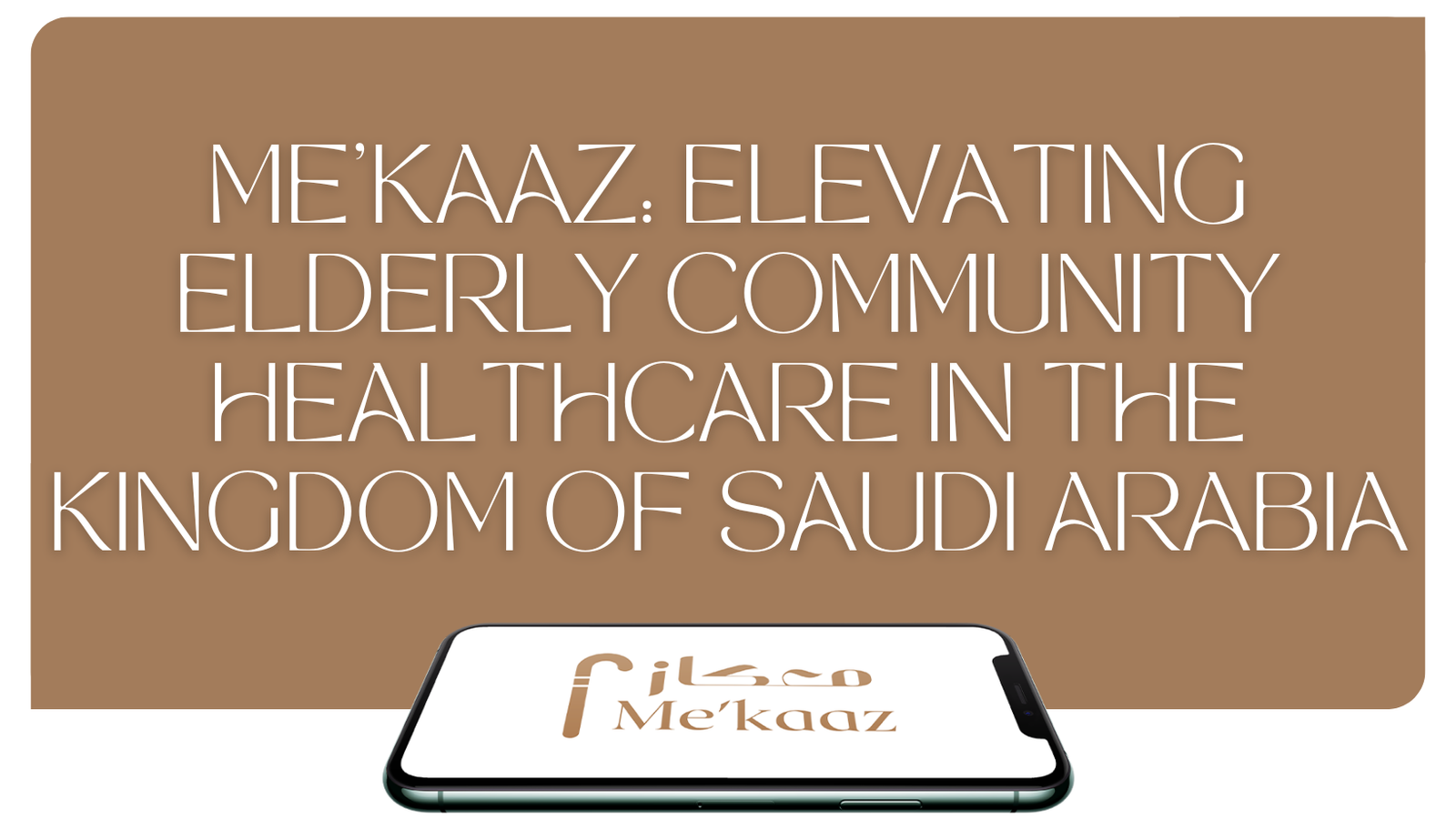10 Essential Tips for Ensuring Optimal Elderly Healthcare and Well-being
The well-being of our elderly loved ones should be a top priority for all of us. As they age, they may require specialized healthcare and support to ensure their optimal well-being. In this article, we will explore 10 essential tips that can help you provide the best care for your elderly family members.
From maintaining a healthy lifestyle to ensuring proper medication management, these tips cover a wide range of aspects that contribute to the overall health and happiness of the elderly. We will discuss the importance of regular exercise, a well-balanced diet, and the significance of mental stimulation to keep their cognitive abilities sharp.
Additionally, we will delve into the significance of regular health check-ups and the benefits of having a reliable support system for the elderly. Taking the time to understand their needs and preferences is key to ensuring their comfort and happiness.
Whether you are a caregiver or a family member, implementing these tips can make a significant difference in the lives of the elderly individuals under your care. So let’s dive in and discover how to provide optimal healthcare and well-being for our beloved seniors.
The Importance of Elderly Healthcare and Well-being
As society progresses, the significance of providing comprehensive healthcare and promoting well-being for the elderly cannot be overstated. With advancements in medicine and healthcare technology, people are living longer than ever, which brings both opportunities and challenges. Elderly individuals often face a myriad of health issues and require specialized care tailored to their unique needs. Understanding the importance of this care is the first step toward ensuring that our seniors enjoy a fulfilling and healthy life in their later years.
Elderly healthcare encompasses a wide range of services, including preventive care, management of chronic diseases, and emotional support. It’s essential to prioritize not just the physical health of seniors but also their emotional and mental well-being. This holistic approach aims to enhance their quality of life, helping them maintain independence for as long as possible. Comprehensive care also reduces the burden on caregivers and healthcare systems by preventing complications that can arise from untreated health issues.
Moreover, the societal implications of neglecting elderly healthcare can be profound. As the population ages, the demand for healthcare services will escalate, necessitating a proactive approach from families and communities. By prioritizing the well-being of older adults, we not only honor their contributions and sacrifices but also foster a culture of care that respects and values all stages of life. This awareness is crucial in shaping policies and practices that support the aging population effectively.
Understanding the Unique Needs of Elderly Individuals
Elderly individuals possess distinct physical, emotional, and social needs that require careful consideration. As people age, their bodies undergo various changes, including diminished mobility, sensory impairments, and increased susceptibility to chronic illnesses. Recognizing these changes is essential for caregivers and family members to provide appropriate support. Understanding the unique needs of seniors allows for the development of personalized care plans that enhance their quality of life while minimizing discomfort.
Additionally, mental health is a critical aspect that often gets overlooked. Older adults may experience feelings of loneliness, depression, or anxiety, particularly if they have lost loved ones or are facing health challenges. Open communication is vital in identifying these issues. Caregivers should encourage discussions about feelings and emotions, creating an environment where seniors feel safe to express themselves. This understanding can lead to timely interventions and support, helping to alleviate mental health concerns.
Social needs also play a significant role in the well-being of elderly individuals. Many seniors thrive in environments where they feel connected to others. Whether through family gatherings, community events, or support groups, social interaction is crucial in combating isolation and loneliness. Understanding the multifaceted needs of elderly individuals enables caregivers to offer comprehensive support that promotes both physical and emotional well-being, ultimately leading to a richer, more fulfilling life.
Creating a Safe and Supportive Environment for the Elderly
Establishing a safe living environment is paramount for elderly individuals, as it directly impacts their health and well-being. Home modifications can significantly reduce the risk of accidents, such as falls, which are a leading cause of injury among seniors. Simple changes, such as installing grab bars in bathrooms, ensuring adequate lighting, and removing trip hazards, can make a world of difference. A safe environment fosters independence, allowing elderly individuals to navigate their surroundings with confidence and ease.
Supportive surroundings also extend beyond physical safety. Emotional support is equally important. Seniors should feel valued and connected, whether through family interactions, friendships, or community involvement. Creating a nurturing atmosphere involves actively engaging with elderly individuals, listening to their stories, and showing genuine interest in their lives. Such connections can have a profound impact on their mental health, reducing feelings of isolation and loneliness.
In addition, technology can play a crucial role in enhancing the safety and support of elderly individuals. Tools such as medical alert systems, smart home devices, and telehealth services can provide both security and convenience. These technologies enable seniors to maintain their independence while offering caregivers peace of mind. By blending physical safety with emotional and technological support, we can create a holistic environment that prioritizes the overall well-being of elderly individuals.
Nutrition and Diet for Optimal Elderly Health
Nutrition is a cornerstone of health for elderly individuals, and it plays a vital role in their overall well-being. As people age, their dietary needs change, and it becomes essential to focus on consuming nutrient-dense foods that provide the necessary vitamins and minerals. A balanced diet rich in fruits, vegetables, whole grains, lean proteins, and healthy fats can help combat age-related health issues, supporting everything from bone health to cognitive function.
Hydration is another critical aspect of nutrition that often gets overlooked. Older adults may not feel thirsty, increasing the risk of dehydration, which can lead to serious health complications. Encouraging regular fluid intake, particularly water, herbal teas, and clear broths, can help maintain hydration levels. Additionally, incorporating foods with high water content, such as cucumbers and watermelon, can contribute to overall fluid intake and enhance health.
Furthermore, meal planning and preparation can be beneficial in promoting optimal nutrition. Involving seniors in the cooking process or offering assistance can encourage them to enjoy healthy meals. Understanding their dietary preferences and restrictions is essential for creating a satisfying menu that caters to their needs. By prioritizing nutrition, we can significantly improve the health outcomes and quality of life for elderly individuals while empowering them to take charge of their dietary choices.
Physical Activity and Exercise for the Elderly
Regular physical activity is vital for maintaining health and well-being in elderly individuals. Engaging in exercise helps to enhance mobility, improve cardiovascular health, and boost overall strength. Tailored exercise programs, including low-impact activities like walking, swimming, and yoga, can be particularly beneficial for older adults. These exercises not only improve physical health but also contribute positively to mental well-being, promoting a sense of accomplishment and boosting mood.
It’s important to recognize that exercise doesn’t have to be strenuous to be effective. Gentle activities, such as stretching and balance exercises, can greatly reduce the risk of falls and injuries. Encouraging seniors to participate in group classes or community exercise programs can also foster social connections, making physical activity a more enjoyable experience. Establishing a routine that incorporates regular movement can help elderly individuals maintain their independence while enhancing their overall quality of life.
Additionally, caregivers and family members should support and motivate seniors to remain active. Providing transportation to exercise classes, engaging them in outdoor activities, or simply walking together can make a significant difference. Creating a positive environment for physical activity encourages elderly individuals to embrace a more active lifestyle, leading to improved health outcomes and a greater sense of fulfillment in their daily lives.
Mental Health and Cognitive Stimulation for the Elderly
Mental health is an integral part of overall health, especially for elderly individuals. Cognitive decline is a common concern in aging populations, making it vital to prioritize mental stimulation and emotional well-being. Engaging in activities that challenge the brain—such as puzzles, reading, and learning new skills—can help keep cognitive functions sharp. Caregivers should encourage seniors to pursue hobbies and interests that stimulate their minds, ensuring they remain intellectually engaged.
Social interaction also plays a key role in mental health. Encouraging elderly individuals to participate in social activities, such as community events, clubs, or family gatherings, can help combat feelings of loneliness and isolation. Building and maintaining relationships provide emotional support and a sense of belonging, which are essential for mental well-being. Regular conversations and check-ins can also foster a strong bond, allowing seniors to express their feelings and concerns openly.
Moreover, mindfulness and relaxation techniques, such as meditation and deep breathing exercises, can significantly benefit mental health. These practices can help reduce stress and anxiety, promoting a sense of calm and well-being. Introducing mindfulness into daily routines can empower elderly individuals to take control of their mental health, leading to improved emotional resilience and a more positive outlook on life.
Preventive Healthcare Measures for the Elderly
Preventive healthcare is crucial for elderly individuals, as it helps identify potential health issues before they escalate. Regular health check-ups, screenings, and vaccinations are essential components of preventive care. These measures can detect chronic conditions early, allowing for timely intervention and management. Caregivers should ensure that seniors have access to regular medical appointments and stay up-to-date with necessary vaccinations, such as flu and pneumonia shots.
In addition to medical visits, maintaining a comprehensive health record can be beneficial. Keeping track of medications, allergies, and medical history allows for better coordination of care among healthcare providers. This thorough record can help prevent medication errors and adverse reactions, ultimately enhancing the safety and effectiveness of treatment plans.
Moreover, educating elderly individuals about health risks associated with aging can empower them to make informed decisions regarding their healthcare. Understanding the importance of lifestyle choices, such as maintaining a balanced diet, engaging in physical activity, and managing stress, can significantly impact their long-term health outcomes. By prioritizing preventive healthcare measures, we can help ensure that elderly individuals live healthier, more fulfilling lives.
Tips for Managing Chronic Conditions in the Elderly
Managing chronic conditions in elderly individuals requires a comprehensive and compassionate approach. Chronic diseases, such as diabetes, hypertension, and arthritis, often require ongoing management and can significantly impact quality of life. Caregivers should work closely with healthcare providers to develop personalized care plans that address the specific needs and preferences of seniors. This collaboration can help ensure that elderly individuals receive appropriate treatments and interventions.
Education plays a pivotal role in managing chronic conditions. Caregivers should provide information about the condition, treatment options, and lifestyle modifications that can help seniors lead healthier lives. Encouraging elderly individuals to actively participate in their healthcare decisions fosters a sense of empowerment and responsibility. This involvement can lead to better adherence to treatment plans and improved health outcomes.
Incorporating regular monitoring and follow-up care is also essential for effective chronic condition management. Scheduling routine check-ups and maintaining open communication with healthcare providers can help identify any changes in health status and allow for timely adjustments to treatment plans. By being proactive in managing chronic conditions, caregivers can significantly enhance the quality of life for elderly individuals, enabling them to thrive despite health challenges.
The Role of Social Support in Elderly Healthcare
Social support is a critical factor in the overall health and well-being of elderly individuals. Having a reliable network of family, friends, and community resources can greatly enhance their quality of life. Social connections provide emotional comfort, practical assistance, and opportunities for engagement, all of which contribute positively to mental and physical health. Caregivers should strive to create and maintain these connections, as they can significantly impact the well-being of elderly individuals.
Community resources, such as senior centers and support groups, can also play a vital role in providing social support. These services offer opportunities for social interaction, education, and engagement in various activities that promote mental and physical well-being. Encouraging seniors to participate in local events or volunteer opportunities can foster a sense of purpose and belonging, reducing feelings of isolation and loneliness.
Moreover, technology can bridge the gap for elderly individuals who may have difficulty accessing social interactions. Video calls, social media, and messaging apps can help maintain connections with loved ones, allowing seniors to stay engaged with family and friends. By leveraging both traditional and technological means of support, caregivers can ensure that elderly individuals experience the social connections necessary for a fulfilling life.
Conclusion: Ensuring a High Quality of Life for Elderly Individuals
In conclusion, ensuring optimal healthcare and well-being for elderly individuals requires a multifaceted approach that encompasses physical, emotional, and social aspects of their lives. By understanding their unique needs and creating a safe and supportive environment, we can help promote a higher quality of life. Prioritizing nutrition, physical activity, mental health, and preventive care further contributes to their overall well-being.
Social support plays an indispensable role in this journey. Encouraging connections with family, friends, and community resources can significantly enhance the emotional and mental health of seniors. As caregivers and family members, it’s our responsibility to foster these connections and provide the necessary support that allows elderly individuals to thrive.
Ultimately, the goal is to empower seniors to lead fulfilling lives while maintaining their dignity and independence. By implementing these essential tips and prioritizing their healthcare and well-being, we can ensure that our elderly loved ones enjoy a high quality of life, filled with joy, connection, and purpose.




